The goings-on down at the Tilleul farm (Seloignes)

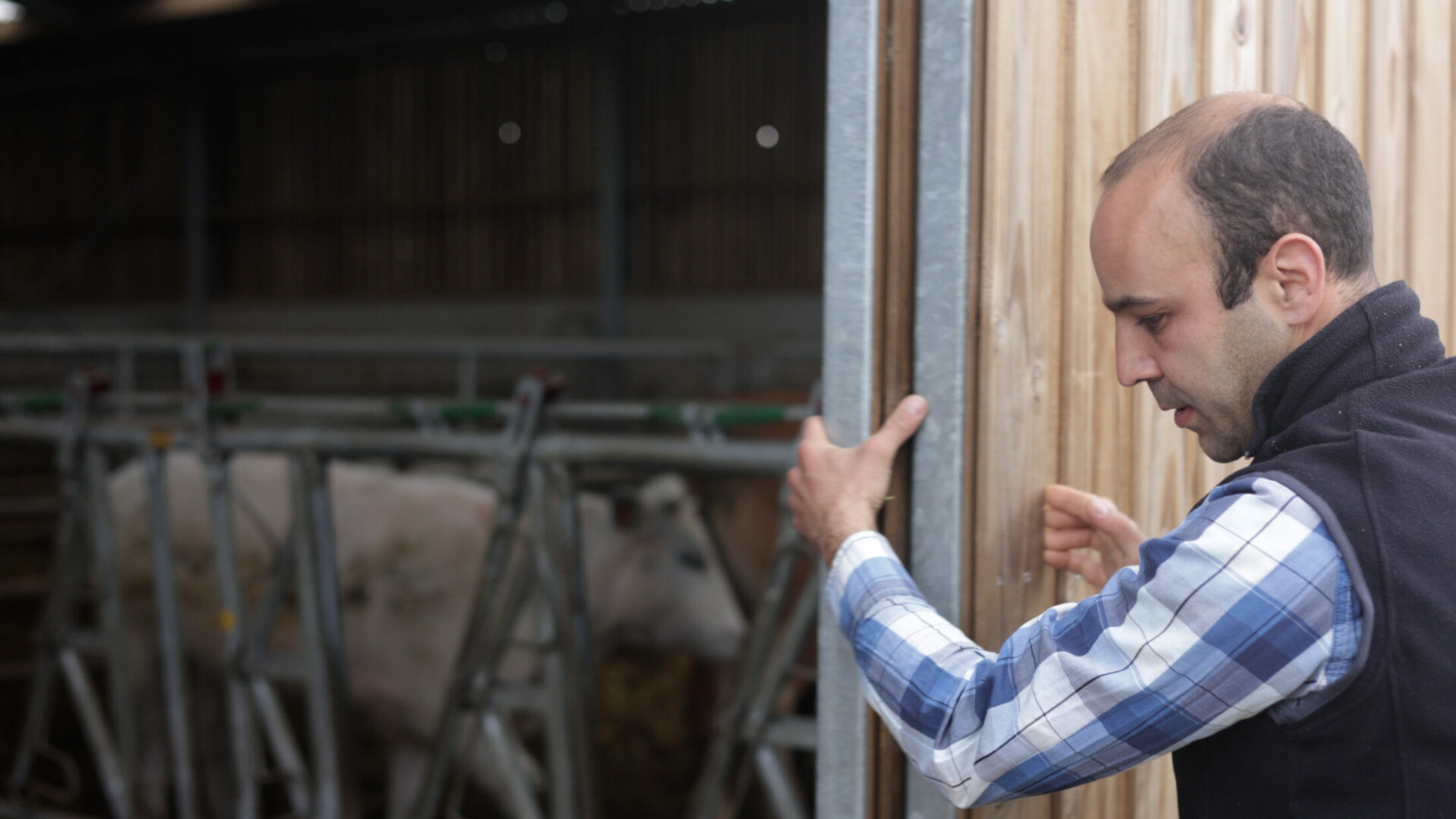
“The animals are born and raised on the farm. We take care of their welfare. We only sell a handful of products, but our approach to breeding means they are very high quality,” explains Angélique, an organic farmer from the Tilleul farm in Seloignes.
Farid and Angelique Everaerts arrived in Seloignes in 2009 and found a building that was perfect for them. “We were looking for a small farm where we could live and work according to our values,” explains Farid.
The farm consists of a main building and two stables, all surrounded by about ten hectares of land. “When we arrived here with our agricultural designs, people thought we were crazy,” he says. “To them, the farm was too small to be viable. Today, we have proved everyone wrong by proposing an alternative production system to industrial livestock farming.”
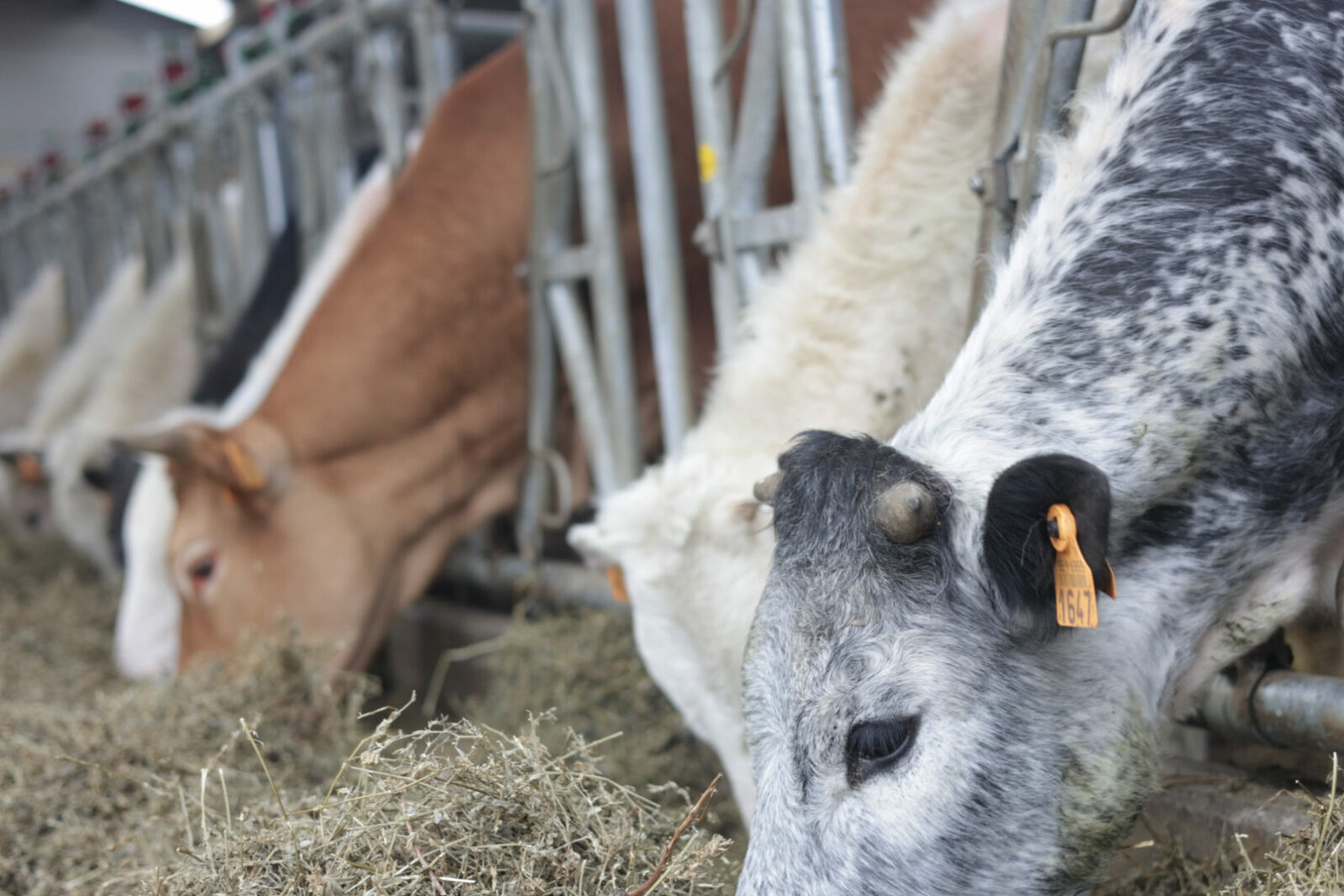
Animals raised in a closed circuit
In his first season, Farid tried out the traditional route of raising animals and selling them to meat wholesalers. “This approach is economically feasible with many animals. But for us, this type of breeding simply didn’t make sense.”
Farid and Angélique decided to take their business in a different direction and be guided by their own values, so that they could guarantee quality products. They rely on a closed-circuit breeding system: the animals are born, raised and fed on site. “We take care of the animals’ welfare, particularly in terms of respecting their growth rate and care.”
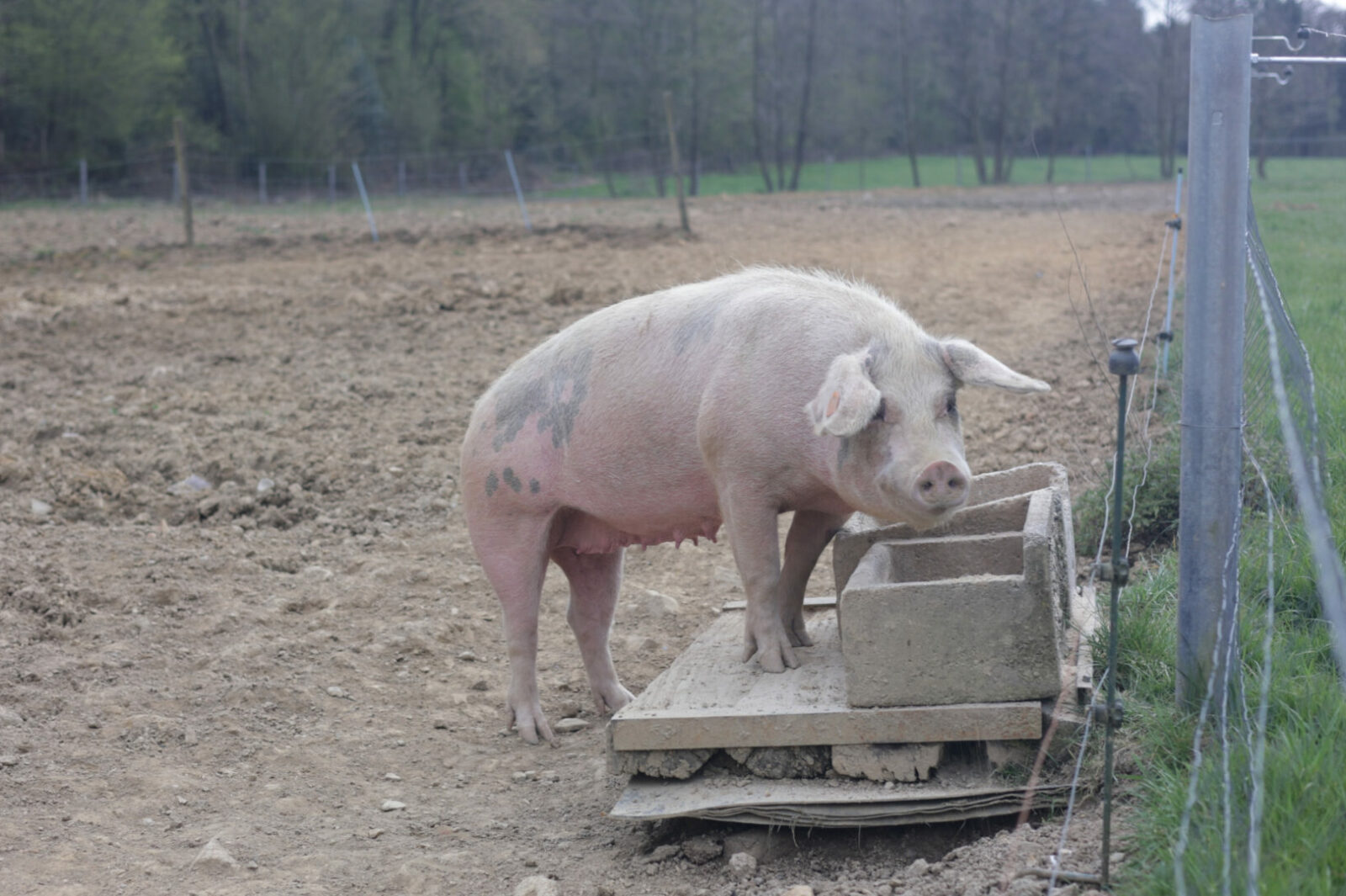
Pushing organic standards further than the industry demands, these farmers favour outdoor living for the animals. “The pigs are outside all year round.”
In addition, they feed their livestock with different types of organic feed.
A to Z management in product preparation
After several months, the animals are sent to an approved slaughterhouse.
Then the products return to the farm, more precisely to the cutting room. There they are prepared and packaged, ready for sale. “I trained as a butcher after I realised that it was difficult to find a cutting location that met my needs. This butcher’s diploma enabled me to learn the right techniques to respect the product as much as possible and guarantee maximum taste,” explains Farid.
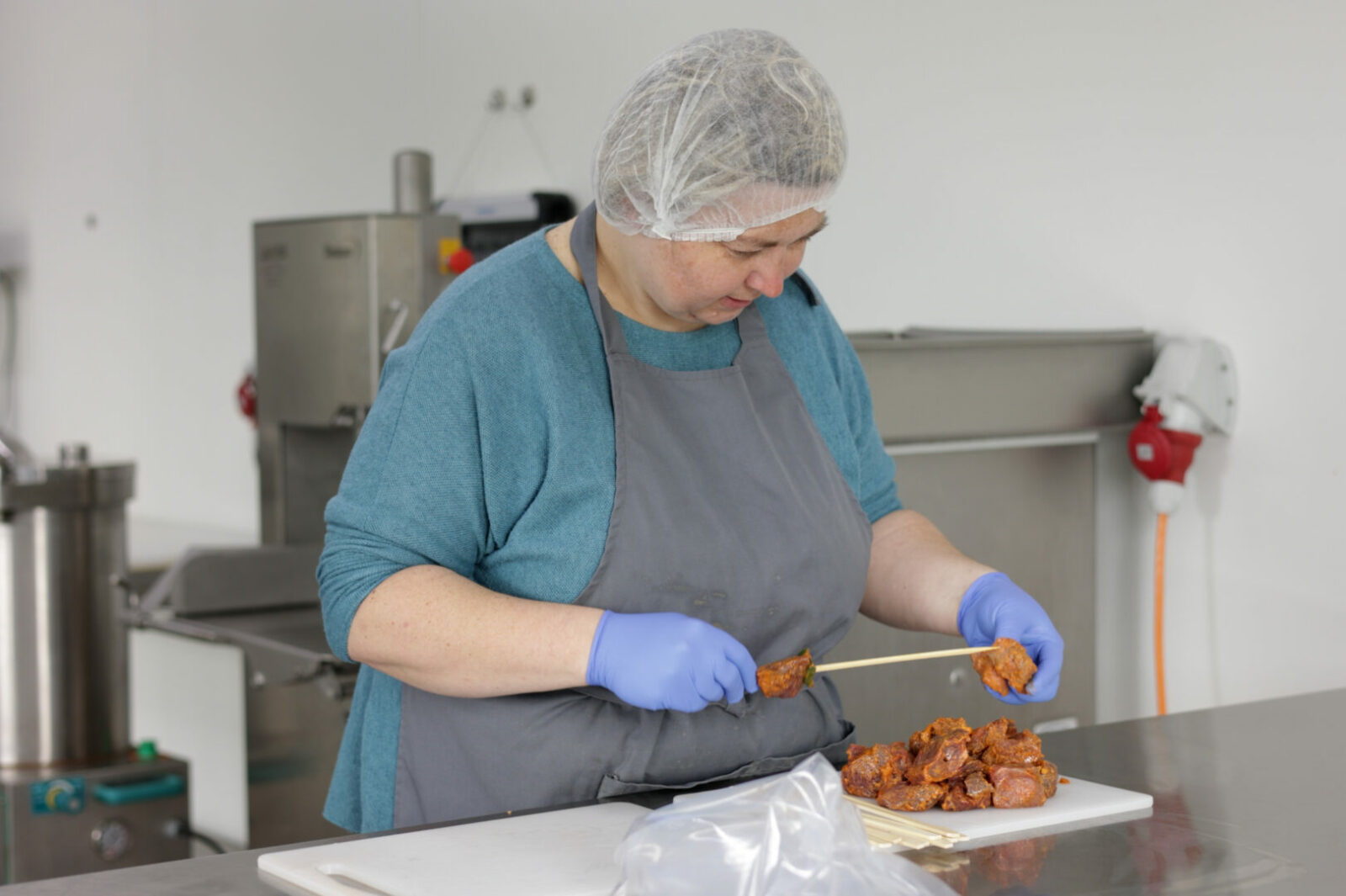
Some of the products are sold on the farm. The rest is distributed via cooperatives and in some local shops.
Contact with customers
The two breeders derive real satisfaction from dealing directly with their customers. “I have really become aware of the quality of my product through the exchanges I have had with my customers. They often tell me what they like about the product or how they prepare their meat. They share recipe ideas with me.”
These conversations are a way of making the producers feel valued. They can also respond better to demand and adapt their range of products. “On the one hand, we have some big meat eaters. So, we prepare large cuts for them. For others, who follow a more flexitarian diet, we make smaller portions.”
After building a new stable a short while ago, Farid and Angélique intend to improve the welfare of their animals by maximising the use of their living quarters as much as possible.
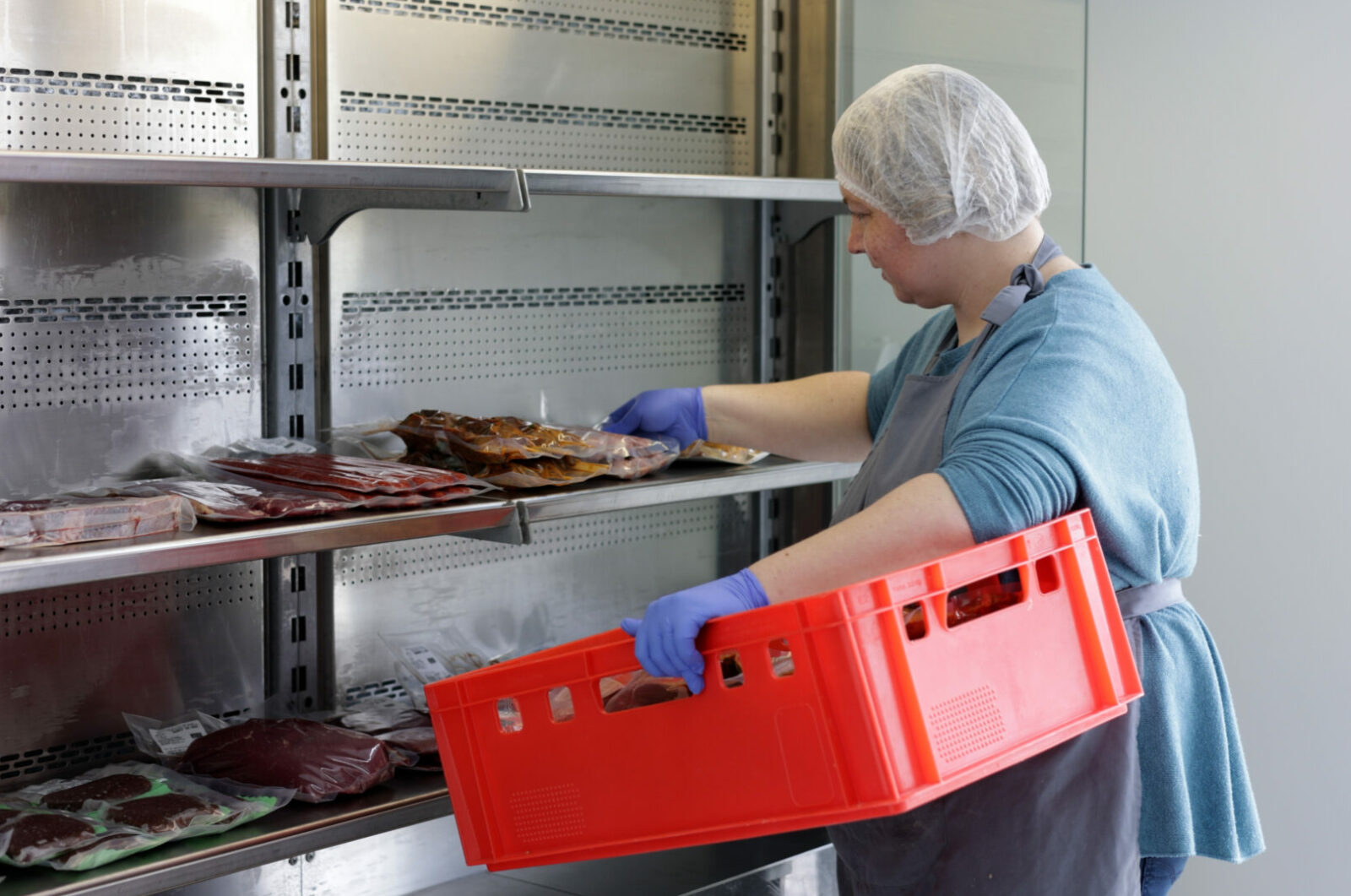
Contact:
Ferme du Tilleul
Farid et Angélique Everaerts
Petite rue, 2
6596 Seloignes
https://www.facebook.com/FermeDuTilleulBio
©Video et photos/Jerome Gobin









